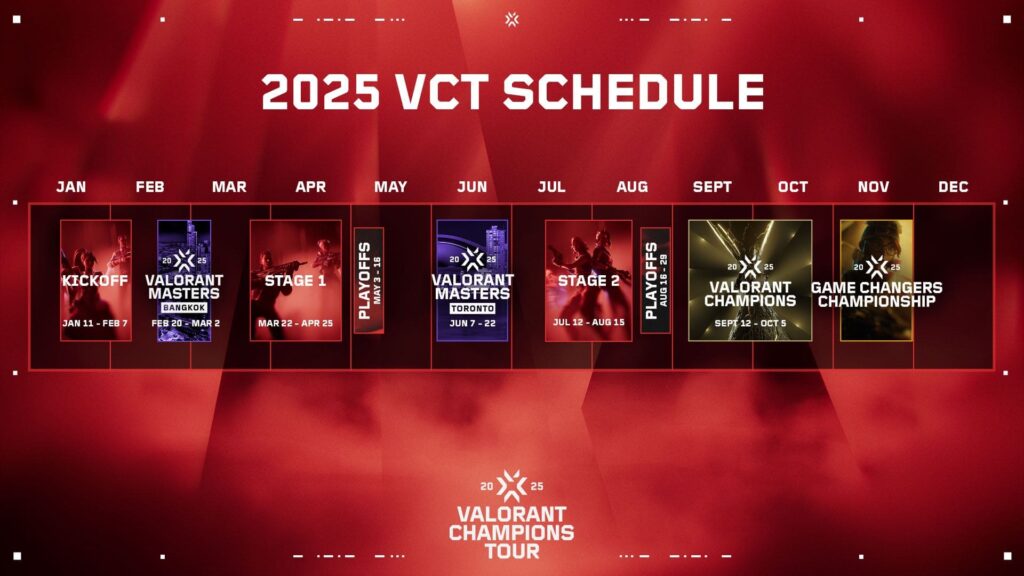Esports Tournament Formats — How Do They Work?
Esports tournament formats establish the structure of the contests and outline the process for determining winners.
Most esports tournaments use either single elimination, double elimination, round-robin, or Swiss formats, or combinations of these.
Understanding the different tournament formats in esports can help bettors and players make better-informed decisions.
Esports tournament formats determine how competitive gaming events are organized. Some are open to anybody, while others are exclusive, invitation-only competitions reserved for the top players. There are also various setups, ranging from round-robins to elimination brackets and entire league systems.
In this article, we’ll discuss the most popular types of esports tournaments and how they work. We’ll also explain how each of these formats can impact betting and offer some expert tips to sharpen your bets and fully capitalize on the booming American esports industry.

- 1. What Are Esports Tournament Formats?
- 2. What Is The Difference Between Open vs. Closed Tournaments?
- Open Tournaments
- Closed Tournaments
- 3. What Is The Difference Between Tournaments & Leagues?
- Tournament Formats In Esports Betting
- 4. Esports Tournament Structure
- League Structure
- Single Elimination
- Double Elimination
- 5. Expert Tips When Playing Esports Tournaments
- 6. Understanding Esports Tournament Formats
- 7. FAQs
- 8. References
What Are Esports Tournament Formats?
Tournament formats in esports are the backbone of competitive video game events, dictating how organizers set up and run their events. At its core, they decide everything from how a player or team qualifies, how they advance or get eliminated, and even how the champion will be chosen.
The first esports tournament, for Spacewar!, took place at Stanford University in the 1970s, which was a key milestone in esports history. However, it was only in the late 1990s and early 2000s that more elaborate tournaments emerged, like the Cyberathlete Professional League and the World Cyber Games.
While esports tournament formats have undergone significant changes since the early days of competitive video gaming, it was ultimately these competitions that laid the groundwork for the structured brackets, regional leagues, and global championships that have become the norm today.
What Is The Difference Between Open vs. Closed Tournaments?
Open Tournaments
Open esports tournament styles are accessible to players of all skill levels. These events typically require nothing more than a team’s registration and, in some cases, a very small fee.
Popular examples of open tournaments in the United States include Major League Gaming (shut down in 2024), DreamHack, FACEIT, and various online qualifiers. Prizes for these contests can range from a modest amount to a substantial $100,000 cash prize.
Most professional esports players began their careers by participating in open tournaments, steadily building their skill and reputation. For bettors, these events can also be highly rewarding, as the increased frequency of upsets offers plenty of opportunities to spot value and profit on the right bets!
Closed Tournaments
Closed esports tournament formats operate on an invitation-only system. You can only join if you have qualified through rankings, qualifiers, or received a direct invite. In most cases, they are reserved for only the world’s best esports teams and players.
Some major U.S. closed esports league games include the global LoL esports circuit, such as the League of Legends EMEA Championship (LEC), alongside professional competitions like the Call of Duty League (CDL) and VALORANT Champions Tour (VCT) events.
Entry into closed tournaments typically requires proof of previous tournament results, league status, or regional ranking, making them highly competitive. They also offer fantastic value for bettors, thanks to the abundance of season-long data and stats to inform esports betting predictions.
What Is The Difference Between Tournaments & Leagues?
Tournament formats in esports are characterized by rapid, high-stakes competitions that often end with teams being eliminated after a loss. On the other hand, leagues run over a longer time scale (usually an entire season) and build a story over time.
Regardless of these differences, both formats are hugely popular, attracting millions of viewers globally. Here’s more detailed information on how they work:
- Tournament Structure: Tournaments have shorter schedules with fixed start and end dates. In most cases, they adopt an elimination format, where participants are knocked out at different rounds until a winner remains. EVO Las Vegas is a great example, hosting over a thousand contestants that compete and are eliminated over a single weekend.
- League Format: Leagues operate over longer time scales, with regular seasons lasting for weeks or months. This format is comparable to American sports, such as the NFL and the NBA. In esports, the Call of Duty League (CDL) follows a format in which teams compete in four Majors over months, culminating in the CDL Championship, where they battle for the world title.
Tournament Formats In Esports Betting
Every tournament format offers something different for esports betting. For tournament bets, you’ll want to focus on bracket predictions and single-match outcomes. These usually feature a lot of upsets, which can affect your strategy and winning potential.
However, league betting is the opposite. It focuses on outcomes of the regular season and playoff scenarios. Many bettors prefer league formats because they provide more data points for analysis and multiple opportunities over long periods.
Esports Tournament Structure
Esports tournament structures come in various formats and are carefully designed to shape how competitions unfold, balancing fairness and excitement for all. For example, single-elimination brackets reward momentum, while double-elimination brackets allow teams to mount comebacks.
Some structures are also better suited for individual competitions, while others are tailored more toward team-based events. Regardless of the format used, each tournament structure influences betting odds and viewer interactions.
By understanding these formats as either a participant or bettor, you’ll know the best strategies to use. For example, it will allow you to follow the match flow more easily and find ideal betting opportunities.
There are three common tournament structures, each offering unique advantages and competitive circumstances. Let’s go over them below:
League Structure
This esports tournament structure is one of the most comprehensive formats of competitive events. The long-term season consists of teams competing regularly for a few weeks or months. Teams play against each other to determine their season-long standing or playoff spot.
Examples of American esports leagues include the League of Legends Championship Series (LCS), the Call of Duty League, and the Overwatch League. Here, franchised teams with a city-based identity compete before advancing to playoff tournaments.

Many American gamblers prefer league formats due to the value offered in futures markets. Beyond outrights, you can also bet on individual matches and playoff outcomes. The extended season also provides a ton of data that can help you make calculated esports betting decisions.
For example, in the 2024 LCS Spring Split, Team Liquid had +350 odds to win the championship. They were consistent in the regular season and had strong head-to-head records against playoff contenders. Some bettors recognized this value and placed future bets on them, earning significant returns later on.
Single Elimination
In single elimination tournaments, every match could be a team’s last—lose one, and you’re out for good. Participants are placed in a bracket where winners advance and losers are immediately eliminated, keeping the action fast-paced and unpredictable.
This simple but dramatic format means that every game carries enormous pressure, producing some of the most unexpected upsets! For example, at Worlds 2025, Gen.G was heavily favored to win, but their near-flawless run was ended by underdogs KT Rolster in a brutal 1-3 Semifinals clash.
It’s one of the main reasons why tournament organizers like ESL Gaming use it for marquee events, ensuring that matches constantly leave fans on the edge of their seats. Naturally, the tournament also offers compelling betting opportunities.
If you do proper research and are lucky, you can spot an underdog capable of causing an upset and bet on them. This can let you come out with huge wins. Some of the best ways to find the best opportunities are from bracket predictions and live betting.
Double Elimination
Double-elimination tournaments incorporate aspects of both single-elimination and longer formats, providing participants with a chance at redemption after suffering a loss. The losing teams drop into a lower bracket after the first round and must try to stay alive by winning every game.
Many tournaments use this esports competition format, from fighting game tournaments like EVO to MOBA events like Dota 2’s The International. In this setup, there are no early-round surprises, as teams remain even after a loss. Those who are consistent will progress and compete in the elimination phase.
As a bettor, you’ll find many unique opportunities in double elimination esports tournament structures. For example, loser-bracket progression betting provides excellent value for teams experiencing early upsets. Meanwhile, grand final betting becomes particularly interesting due to the bracket reset rules.
Expert Tips When Playing Esports Tournaments
Do you want to get the most out of betting on playing various esports tournament formats? Then, you should follow our expert tips below:
Each tournament demands a different strategy. For example, single elimination events favor conservative play to avoid early exits, while league formats require aggressive play that builds wins over time.
What is the playstyle, strategy, and how a team performs under pressure? This allows you to understand where their strengths lie and what they would likely be best at betting.
Ever played in tournaments before, especially the ones with longer formats? If yes, you know that it can be quite draining. That’s why you should try to stay balanced, have a good schedule, and know when to take breaks.
The tournament environment is way different from what you have when playing casually with your friends or for fun. You’ll get pictures, crowds, prizes, and all of these pressures, and they can add pressure to the experience. If you’re participating, practice for some high-stakes moments.
Most of the time, teams that play out of the loser’s bracket tend to get tired after playing multiple games. Consider this when making your predictions. You can focus on teams that have had a good rest and can perform well in their games.
Understanding Esports Tournament Formats
Tournament formats in esports vary widely, which is precisely why it’s essential to understand how each operates. In doing so, you’ll enhance your experience as a player, viewer, or bettor. Each format serves a unique purpose. For example, open tournaments are designed for beginners and closed competitions for elite teams.
These varying tournament and league formats create distinct competitive environments for both fans and bettors. Esports tournaments have undergone considerable changes and growth in the last several years—both in scale and sophistication.
According to Newzoo, the global esports industry has a player base of 3.6 billion, a figure expected to reach nearly 3.9 billion by 2028. Revenue is projected to grow from $188.8 billion in 2025 to $206.5 billion by 2028, with consoles leading the charge as the fastest-growing platform at 5.5% year-on-year.
If you’re interested in esports betting, remember that every tournament format comes with its own options and risks. Leagues tend to be more predictable, offering consistent data to back your analysis, while tournament structure often produces more upsets.
When betting on esports tournaments, ensure you maintain responsible gambling practices. This means defining reasonable limits and knowing when to call it quits.
FAQs
What match formats are used in esports?
Esports tournaments typically employ a best-of-one series (teams play a single game to determine the winner) and a best-of-three series (the first team to win two games is the winner). There are also best-of-five series (the first to win three games prevails), typically reserved for Finals.
What are the most common esports tournament formats?
The most common format is single-elimination brackets, where a single loss eliminates teams. There’s also the double elimination format, which features winners’ and losers’ brackets, round-robin group stages, a regular season, and playoffs.
What are the differences between centralized and open esports tournaments?
Centralized tournaments are invitation-only events for selected professional teams who meet specific criteria. Open tournaments allow all eligible participants to enter and compete.
How does a hybrid tournament format work?
Hybrid formats include round robin group stages to determine seeding. Then it uses the single or double elimination brackets for finals.
What is the Swiss system in esports?
The Swiss system assigns participants with similar win-loss records each round, so those players face similar levels of skill competitors. This works for a set number of rounds with no direct elimination until final standings are determined.
References
- Newzoo’s Global Games Market Report 2025 | Free version (Newzoo International B.V)















